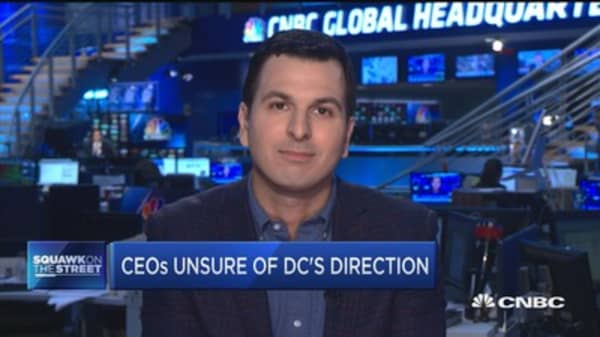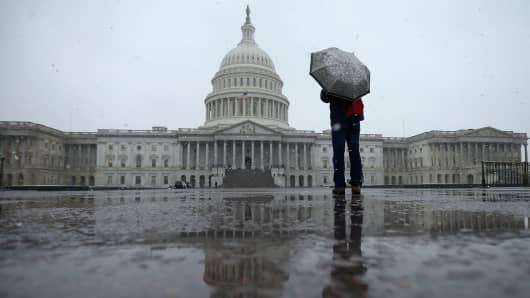Corporate leaders are openly questioning what, if anything, the Trump administration will be able to do for business, given a lack of major action on his promises of corporate tax reform, new health-care policies and a tax on goods coming across the border.
CNBC analyzed the latest round of earnings calls and found that while many CEOs remain optimistic of a pro-business administration, a growing number are unsure of Washington's direction six months after the inauguration.
Companies are putting off share buybacks, delaying capital investments and waiting to spend on business development. And the hesitation is across industries, in companies both big and small.
Pfizer CEO Ian Read said the company needs corporate tax reform settled before it can move forward with any business development opportunities.
"Right now I believe we need to see tax reform or the absence of tax reform to understand what the market values are," he told analysts in an early August earnings call. "Any focus on BD, to my point of view, is somewhat delayed by a resolution of that."
Advertising giant Interpublic blamed D.C.'s dysfunction in late July after earnings missed EPS and revenue expectations. Revenue fell $32 million in the second quarter, compared with the same period in 2016.
"Our results in the quarter reflect the fact that macro uncertainty and political gridlock are affecting spending, particularly in the U.S. with clients demonstrating caution in terms of releasing budgets," CEO Michael Roth said.
Shares in the company fell 12 percent the following day, erasing a year of gains.
Luxury apparel maker Ralph Lauren reported better-than-expected earnings in August, with net income of $59.5 million for the quarter, compared with a loss of $22.3 million the prior year. But executives said the company would not buy back stock with tax policy so up in the air.
"We are not planning share repurchases for fiscal 2018," CFO Jane Nielsen said. "We make this determination based on the cash needs of our businesses, sector dynamics and with consideration for the uncertain environment around U.S. tax reform."






